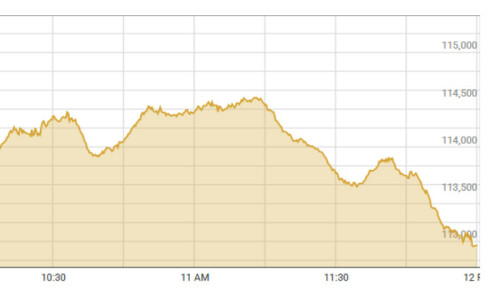RAWALPINDI, Sept 24: Global foreign direct investment (FDI) inflows rose in 2007 by 30 per cent to reach an all-time high of 1,833 billion dollars, according to a new report released by the United Nations Conference on Trade and Development on Wednesday.
The World Investment Report 2008: Transnational Corporations and the Infrastructure Challenge, UNCTAD´s yearly review of investment trends shows the 2007 flows surpassed the previous record set in 2000 by some 400 billion dollars, despite the global financial and credit crises which began in the second half of 2007. However, the worldwide slowdown appears to augur lower FDI activity for 2008, the report says.
The upward trend in 2007 was apparent in nearly all regions and sub-regions of the world, and in all three economic groupings: developed countries, developing countries, and the transition economies of South-East Europe and the Commonwealth of Independent States (CIS).
The stock of FDI worldwide reached 15 trillion dollars, according to the report. This represents the significant scale of the activities of some 79,000 transnational corporations (TNCs) worldwide which own about 790,000 foreign affiliates. The sales, value-added, and exports of these affiliates are estimated to have increased by 21 per cent, 19 per cent, and 15 per cent, respectively, in 2007.
FDI inflows to developed countries amounted to 1,248 billion dollars. The United States remained the largest recipient country, followed by the United Kingdom, France, Canada, and the Netherlands.
FDI inflows to developing countries reached their highest level ever - 500 billion dollars - a 21 per cent increase over 2006. While South Asia, East Asia, South-East Asia, and Oceania accounted for half of all FDI into developing countries, Latin America and the Caribbean recorded the largest increase (36 per cent).
FDI flows to South Asia increased by 19 per cent to 31 billion dollars, mainly due to a significant increase in flows to India and Pakistan.
Robust economic growth, an improved investment environment and further opening up of the telecommunications, retail and other industries contributed to a 17 per cent increase in FDI inflows to India, which surged to 23 billion dollars in 2007.
In Pakistan, economic growth and privatisations attracted increased inflows in the banking, telecommunications, oil and gas industries. A 17 per cent rise in reinvested earnings also helped, says the repot.
FDI from South Asia rose by six per cent to 14.2 billion dollars, dominated by investments from India which rose to 13.6 billion dollars in 2007, much of it the result of a significant increase in cross-border acquisitions.
Indian firms have been active investors in both developed and developing countries, particularly in pharmaceuticals, extractive industries, information technology and other business services.
The production of goods and services by an estimated 79,000 transnational corporations (TNCs) and their 790,000 foreign affiliates continued to expand in 2007, the latest World Investment Report reveals. The value-added activity of foreign affiliates worldwide accounted for 11 per cent of global gross domestic product (GDP) in 2007, and sales amounted to 31 trillion dollars — a 21 per cent increase over 2006.
The foreign activities of the world’s largest TNCs increased significantly, with those from developing economies expanding most quickly.
Manufacturing and petroleum companies retain some of the top positions in UNCTAD´s ranking of the world’s 25 largest non-financial TNCs.
However, TNCs in services, including in infrastructure, have become increasingly prominent during the past decade.
Comparatively, the largest TNCs from developing economies operate in a broader range of industries, with companies from the electrical/electronic and computer industries, the petroleum sector and telecoms dominating the list.
Manufacturing and petroleum companies retain some of the top positions in UNCTAD´s ranking of the world’s 25 largest non-financial TNCs. However, TNCs in services, including in infrastructure, have become increasingly prominent during the past decade.
Comparatively, the largest TNCs from developing economies operate in a broader range of industries, with companies from the electrical/electronic and computer industries, the petroleum sector and telecoms dominating the list.















































Dear visitor, the comments section is undergoing an overhaul and will return soon.